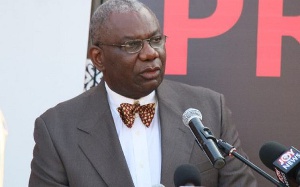Some 850megawatts of power is expected to be added to the national grid as government pursues an agenda to convert all hydro generating stations into hybrid facilities, incorporating solar energy into them.
According to the Minister for Energy, Boakye Agyarko, the additional megawatts of power are expected to be derived from three hybrid systems which would include Bui, Akosombo and Kpong Dams.
Addressing Members of Parliament, he said: “Bui Dam has already started converting to a combination of solar and hydro to evacuate 250MW onto the national grid. The main Akosombo Dam is expected to house a solar facility of 500MW and the Kpong Dam similarly will host a facility of 100MW. Indeed, VRA is designated to be the lead on the expansion of solar facilities in the country”.
The Energy Minister also disclosed that government intends to incorporate renewable energy into the energy mix for a number of public institutions, including educational institutions.
“In that wise, a pilot programme has already started in the University of Ghana, Legon, to combine solar, waste, biomass with the utility. Therefore, I made a commitment when I first appeared in this house that this building of Parliament will be headed for solar.
“In that wise, we have started taking the power profiles of all your facilities in order to make sure that early next year the House of Parliament will begin to enjoy solar as a major component of its power supply: as will the Flagstaff House, and all the 36,000 Junior High Schools and 681 Senior High School facilities.”
He however maintained that all these initiatives will be promoted through the private investment space.
To this end, government will soon access its share of the US$2billion Renewable Energy Credit Facility from the Indian government meant for African countries, following parliament’s ratification of the framework agreement on establishment of the International Solar Alliance (ISA).
The previous administration initiated a “Capital Subsidy Scheme” that was expected to see some 20,000 rooftop solar systems installed in residential homes.
Under the scheme, selected applicants will be given a maximum of 500watt peak solar panels free of charge, while they pay for the remainder depending on what their total need is.
Due to increase in global energy demand and the continuous usage of fossil fuels which is damaging the environment, it is imperative that government considers solar as an alternative to fossil fuels.
Business News of Tuesday, 10 October 2017
Source: thebftonine.com
Hybrid power stations to add 850MW to grid
Entertainment












